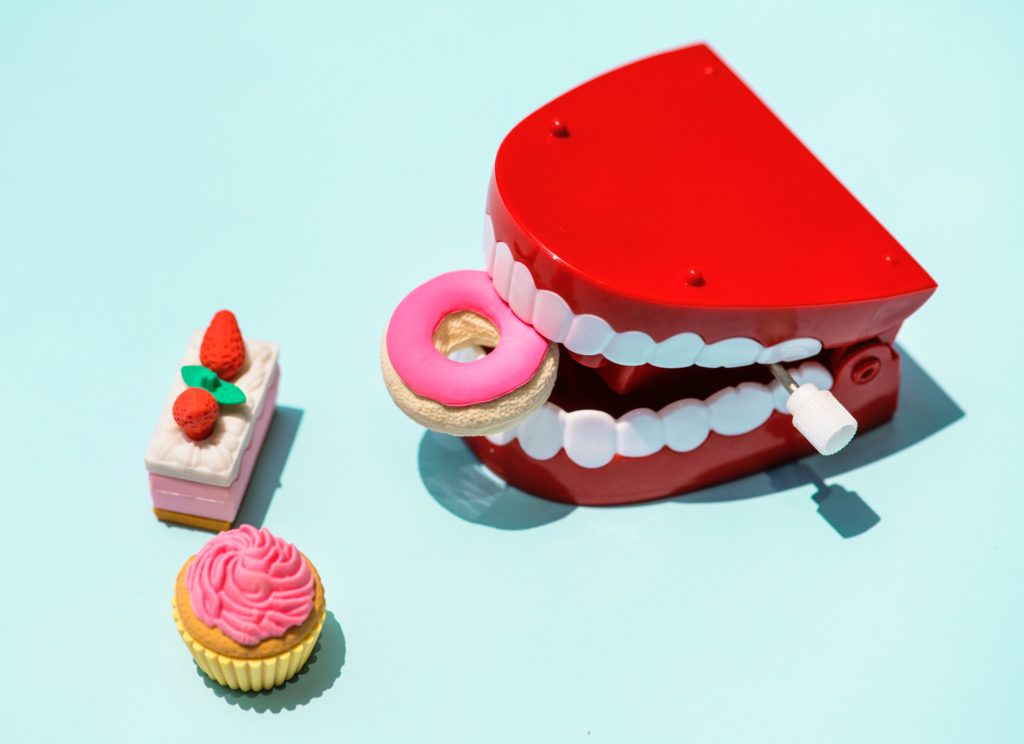
Sugar Craving: Why Am I Constantly Eating Sweets?
Sugar Craving: Why Am I Constantly Eating Sweets?
I’d like to introduce you to Janelle Hunt, who is a Registered Dietitian and an EDIT™ Certified III – Eating Disorder Treatment Clinician. Janelle worked with me at my previous office location in Denver, Colorado. She is a knowledgeable and compassionate clinician, who specializes in nutritional counseling for people in recovery from eating disorders. She guides her clients to learn the real facts about nutrition – in this article, you’ll learn the facts about fats. If you’re “hungry for more,” please contact Janelle about becoming a client (see bottom of article).
– Dr. Dorie
Do you constantly crave sweets?
Do you try to avoid sugar, but eventually binge?
Do you wonder if you have a sugar addiction?
We are constantly bombarded with conflicting nutrition messages; “Eat only foods that are fat-free or low-fat,” “Consume high fat food and lots of protein,” “Avoid all carbohydrates,” “Everyone should follow a Paleo diet,” etc. Let’s step away from the fad diet band wagon for a moment, and consider why it’s important to consume all nutrients in moderation – including carbohydrates.
Foods containing carbohydrates are broken down to glucose in your body, which is the key nutrient. Examples of a few carbohydrate-rich sources are foods containing sugar like desserts or candy – as well as bread, rice, grains, lentils, potatoes, pasta, juice and fruit.
Carbohydrates are an important energy source for your body, which you likely are aware of already. Not only are they important to provide energy for your body but they also provide fuel for your brain to function. Glucose is the only nutrient that can cross into your brain to be used as fuel to allow you to concentrate and think clearly.
What is often not talked about is how important carbohydrates are for the production of making the messenger’s in your brain, specifically serotonin, which is responsible for functions such as making you feel happy and relaxed, as well as helping you sleep, regulate your blood pressure properly, have pain sensitivity and control your mood.
Have you put carbohydrates into a “bad food” category? Especially sugar – have you told yourself that you should never eat sugar, because you have a “sugar addiction”? If so, do you find you restrict sugar and then binge on sugary foods or other carbohydrates, which can often lead to a feeling of being out of control? Your brain knows you will feel better, think more clearly and sleep better if you eat carbohydrates – therefore, if you avoid them, your brain will keep reminding you to eat them until it often becomes an overwhelming need to over consume them (often snack foods, like chips, crackers, pastries, candy or dessert). This tendency of using food as if it were a drug to help you feel better, can lead to weight gain which then reiterates your belief that carbohydrates are “bad.”
Have you ever been on an Atkins diet? Most people describe they get incredibly irritable and can’t think clearly when they follow a low carbohydrate diet, such as Atkins. This is because their carbohydrate intake is so low that they have no fuel for their brain to function properly nor can they make serotonin effectively.
What if you practice getting away from the thought that “carbohydrates are bad” and “sugar is addicting,” and instead focus on telling yourself carbohydrates are essential to consume throughout the day to help you decrease binges, think more clearly, and provide you with a more stable weight. Practice getting away labeling food as good and bad and instead work on incorporating everything in moderation – including sugar!
*****
Looking for guidance with NUTRITION? Contact Janelle Hunt, MS, RD – the author of this blog article. She is an EDIT™ Certified III – Eating Disorder Treatment Clinician, and has a specialty in nutritional counseling for eating disorders. – EMAIL JANELLE
Interested in a FREE consultation with Dr. Dorie? Dr. Dorie is passionate about her method of Eating Disorder Intuitive Therapy (EDIT)™ to help people overcome eating disorders and addictions. She provides customized counseling for eating disorders and alcohol / drug addiction at her Positive Pathways treatment center in Evergreen, Colorado – and EDIT™ eating disorder training and certification for coaches and clinicians worldwide. CALL 303-494-1975 – EMAIL DR. DORIE


